Of all the bands that hail from the prolific Leeds scene, none have captured my heart and mind more than Red Lorry Yellow Lorry. Formed in 1981 and adopting a name based on a popular children’s rhyme, the cacophony that came from The Lorries both on record and on stage was anything BUT child-like. Snarling guitars, pummeling drum machines, hard-hitting choruses, and Chris Reed‘s deep menacing vocals formed the bedrock of the band’s trademark sound, full of passion and fury and perfectly capturing the industrial landscape of a British city in peril.
The Lorries found the perfect middle ground between the art-damaged post-punk of Wire and Killing Joke and the wild rock and roll abandon of MC5. Over the course of five stellar studio albums and a run of classic singles such as “Monkeys on Juice,” “Walking On Your Hands,” and “Spinning Round,” the band carved out their own niche in England’s budding “goth” scene. Their legacy continues to date, with many of their classic tracks still appearing in DJ sets and clubs across the world.
As the band evolved, their rock ‘n’ roll sensibilities came to a head – for 1989’s underrated Blow LP, the band retired their trademark drum machine and employed a live drummer, a controversial move that the band stuck behind for the rest of their tenure. The Lorries imploded soon after, but reunited sporadically throughout the early 2000s for a series of highly publicized reunion shows. Throughout this time, Reed led a new lineup of the band, which included classic-era guitarist David Wolfenden, bassist Simon ‘Ding’ Archer (PJ Harvey, The Fall), and drummer Martin Henderson (The Mekons, Skeletal Family). This lineup tore through Europe and rekindled the fire that once lie dormant within the band, culminating in a series of new studio recordings that reportedly picked back up where the band left off. Though a whole album was recorded at this time, the material remained unreleased and the band went dark once more.
After a decade of silence, an EP’s worth of material, featuring several new tracks and a remix by the great John Fryer, materialized in late 2024, with the promise of a final full-length album to follow. Today marks the unexpected, but extremely welcome release of Strange Kind of Paradise, the lost album The Lorries cut over ten years ago. The album, released on COP International, is a triumphant return to form, featuring ten hard-hitting, razor-sharp tracks that capture the blistering essence of Red Lorry Yellow Lorry in full. While the album is certainly worth celebrating, it’s also extremely bittersweet as well, as the album marks the official end of the band as we know it.
We had the chance to catch up with guitarist and Lorries mainstay David “Wolfie” Wolfenden about Red Lorry Yellow Lorry’s illustrious career, how the new album came together, and the band’s trademark sonic imprint. Check it out below and be sure to pick up a copy of Strange Kind of Paradise via Bandcamp.
What was the spark that first brought the founding members together, and how did the city’s industrial atmosphere shape the earliest Red Lorry Yellow Lorry rehearsals?
I think in the beginning the thing that draws people together to form a band is a mutual admiration for a style of music that they all like and hopefully can emulate in some way. I think this is how we monitor our progress in the formative days. I wasn’t there in the beginning, but I suspect that’s what Chris did. I know Mick Brown had a deep love for rock music and in particular Led Zeppelin. I think the original singer Mark Sweeney was trying to be Iggy Pop. Chris liked bands like Television and Velvet Underground but could also see the appeal in ZZ Top. Steve Smith, he’s a great musician and can play anything.
I don’t think there was a master plan. Back then Leeds was a grim place, the city was dying on its feet and not quite sure of how to cope with the demise of the industrial revolution. I think there was a strong desire to escape the city in some way.
Many recall The Warehouse on Somers Street as a crucible for Leeds post‑punk. Can you describe your first experiences there—either as antendees or performers—and how that venue influenced your sound, stagecraft, or sense of community?
To be honest, The Warehouse was a place where the post-punks and New Romantics went during the weekend to take drugs, find casual sex partners, and catch up on gossip about the local music scene… Oh, and occasionally dance! The DJs were great – a lot of electro, Cramps, Bauhaus, you get the picture. The owner was very supportive of Leeds bands, Marc Almond was the cloakroom attendant! That explains a lot about Soft Cell.
We played there a couple of times. The dressing room was about the size of a toilet, but the right people came.
Leeds in the early ’80s was teeming with bands like The Sisters of Mercy, The March Violets, and The Three Johns. What sort of camaraderie, competition, or inspiration did you draw from those contemporaries?
That was some healthy competition back then. It was more a case of seeing how well the competition was doing and using that as a metric against your own progress. It wasn’t all backstabbing though. Andrew Eldritch was always a big Lorries fan. I think the guitarists from these bands got drunk and compared notes about flanger pedals!
The local scene leaned heavily on primitive rhythm boxes and low‑budget recording. How did the Leeds ethos of “make something fierce with whatever gear you’ve got” feed into your trademark minimalist aggression?
Back then using a drum machine in a rock band had not really been done before. On paper it shouldn’t work. It did for Suicide but they were definitely not a rock band so some interesting stuff came out of it all – like spending weeks learning how to program it! Leeds in a lot of ways was like Sheffield, trying to bend technology to your will. That was part of the fun and part of the frustration.
Looking back on your debut show—rumored to be at either The F‑Club or The Warehouse—what stands out most: the set list, the crowd reaction, or the technical chaos?
I’m not sure where the band played their first gig, it was probably at a pub in Leeds. My own first gig was at The Warehouse in Leeds. I was so drunk and so pissed off with an ex-girlfriend that I trashed my gear on the last song and sulked off stage. It wasn’t planned, it felt like the right thing to do at the time!
Labels such as Red Rhino and Beggars Banquet’s Situation Two, plus local record shops and fanzines, helped propel Leeds bands outward. Which early champions or institutions were pivotal in getting your demos heard beyond West Yorkshire?
Dave Hall was the manager of the band at that time and without him, I don’t think the band would’ve made the progress it did. He was unbelievably supportive, never said no to whatever ridiculous idea we had. He seemed determined to make it work, whatever the cost. He’s an amazing man. John Keenan was a local promoter for post-punk gigs. Like Dave, he was a pioneer and visionary. They both had plenty of balls.
The band got their deal with Red Rhino in York almost immediately. The deal was in place before I joined. I always felt they should’ve gone somewhere else like 4AD or Factory.
Over the years the band has evolved to incorporate new styles and instrumentation, yet the kinetic energy and sheer power of the band has always remained intact. What kept the fire going?
I think in simplistic terms we wanted to hear music that we didn’t feel anyone else was playing at that time. It had to be energetic, exciting and guitar driven. Chris was the principal songwriter and stills is. He has a God-given talent I think you use the band as a vehicle for your pent up frustrations and emotions you can’t easily verbalize. Yes, we made a frightening racket live, but the songs are really well crafted. We spent a lot of time getting them right. When you’ve done something good, you think what’s next? Like Iggy said I’m looking for one new value.
I really loved last year’s Driving Black EP, it felt like the band hadn’t skipped a beat after twenty years. I understand that most of this material was written and recorded during a series of reunion gigs and then ultimately shelved as the band moved on once more. What happened?
The song “Driving Black” is quite an old song that Chris released as a demo. Around 2014 we used to meet up every week go through all the ideas refine them and then work on the next. We ended up with about thirteen songs in total which constitutes the 12” and the new album. Chris always had songs on the go, it’s what he did. He used to say that he will write a beautiful ballad and let me fuck it up. Eventually, we had enough songs to do album and with Ding in the band, we started recording the studio in Manchester.
I’m glad the material is seeing the light of day – are there other tracks from this era that were held back for a rainy day?
The 12” and the album are the last of the Lorries songs, unfortunately. We started the recording process, Chris became a full-time career-guy, Covid happened, and then Chris got ill. It seemed wrong to let these songs fester on a computer hand drive. Both Ding and I wanted them released. Chris seemed indifferent and wasn’t in a good space. We acted with pure intentions. The album adds the punctuation to The Lorries’ career.
The album’s aggression and the band’s energy is certainly something that’s needed in today’s landscape. The lyrics, while written a decade ago, seem to be as prescient as ever. Can you talk about some of the album’s themes?
Chris always said he wrote about the human condition, which is kind of vague. I don’t think you want to explain these lyrics too much. There was always space for the listener to attach meaning to the lyrics. But yes, they are about loss, alienation, failed relationships, fake stoicism and superficiality. The usual stuff…
Can you tell us a bit about how the record came together?
Ding, who is the band’s bass player, very kindly offered to let us use the studio in order to realize these demos we’ve been doing. He engineered and produced it. We all contributed ideas and argued it out! Without him, it wouldn’t exist.During Covid, he finished the tracks in our absence. He just kept refining the mixes, they got better and better. A true labour of love on his part.
I’d love to hear a bit more about his production techniques and how he captured the live sound of the band so perfectly…
You would have to ask him really, we started the process with him. Got the guitars down and the drums. He sharpened and refined it into its finished form. He’s incredibly capable with technology, his track record speaks for itself. If you can describe something, an idea, a sound, and he will conjure it up. He knows his equipment inside out and has a fine set of ears.
The decision to incorporate live drums into the band’s recordings is controversial to some fans, but I love that you’ve stuck to your guns on the new recordings. My favorite old school Lorries album is Blow, and I felt the live drumming really elevated some of the tracks while adding texture and nuance to others. What inspired this sonic shift all those years ago and how do live drums factor into your current sound?
I agree with you about real drums adding texture and dynamics, that was something we weren’t getting out of using drum machines. They’re not very spontaneous at the end of the day, they’re a computer. Back in the day the drum machine was taking up about 75% of our time in the studio and the sound checks and we were sick of it. Not all drummers like working with them, either.We just need to find a drummer good enough in order that we could ditch it. The band became a lot more enjoyable without the drum machine, to be honest.
I’ve always admired the band’s ability to craft such a wall of sound out of the guitar, which has always been both razor sharp and perfectly layered. How has the band’s relationship to the guitar evolved over the years?
That’s a good question. With two guitars in a band you have to work together to create a sum that is greater than the part. Musically and sonically, they have to compliment each other. We always love doing the guitars and used to believe that when we got it right the final result sounded like third instrument. We got better as we went along I learned a lot from Chris. I was always into effects and dissonant stuff. That complimented Chris’s songwriting. A lot of it was instinctive but you knew when it sounded good, it was a learning process.
Now that Strange Kind of Paradise is finally out, what’s next? Is this truly the end of the legendary Red Lorry Yellow Lorry?
It certainly looks that way. There would be no point performing live without Chris. He is the voice of the band. It’s sad, but he’s just not well enough to do it. I think this is a more respectful end to it. Finish on the high note, no encore. §
Strange Kind of Paradise is out today on CD, vinyl, and digital streaming services. Check below for the full track listing and pick up a copy via Bandcamp.
1. Strange Kind Of Paradise
2. Chicken Feed
3. As Long As Were Breathing
4. Walking On Air
5. Killing Time
6. Driving Black
7. Shooting Stars Only
8. Many Trapped Tears
9. The Only Language
10. Worlds Collide
Follow Red Lorry Yellow Lorry:
All photos by Neil Chapman
Album cover by David Wolfenden



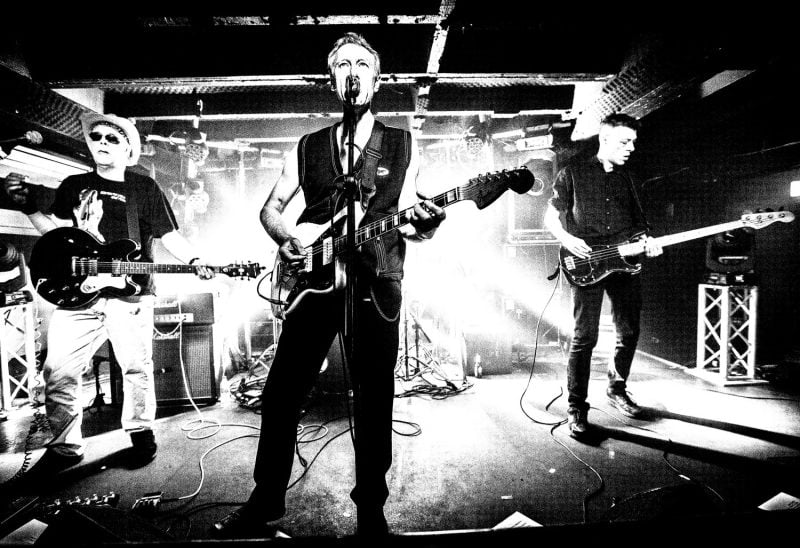
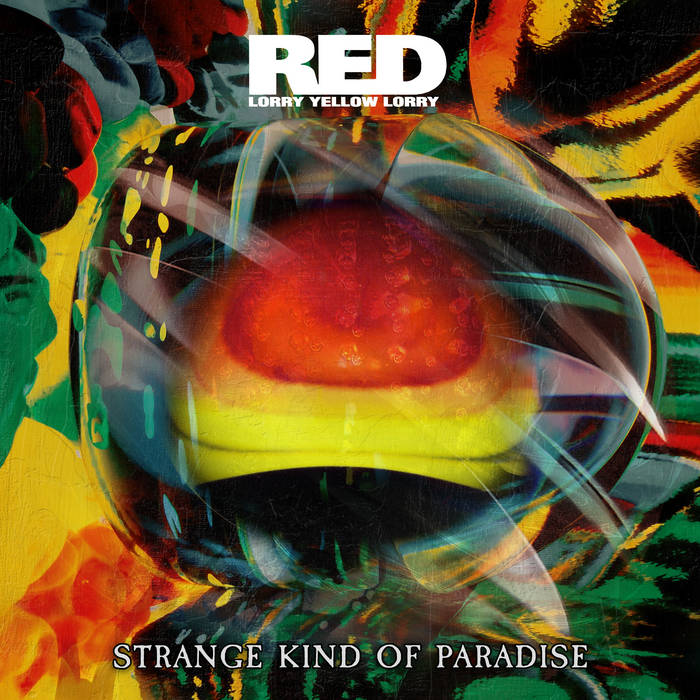
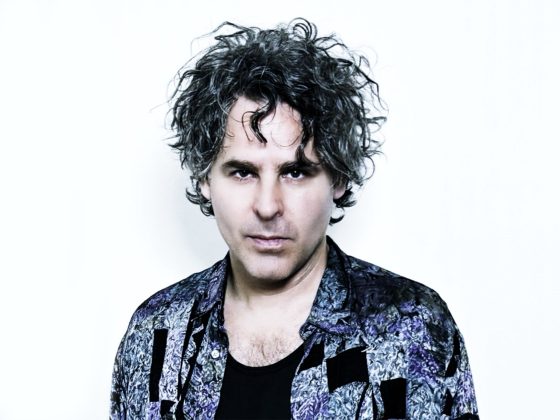
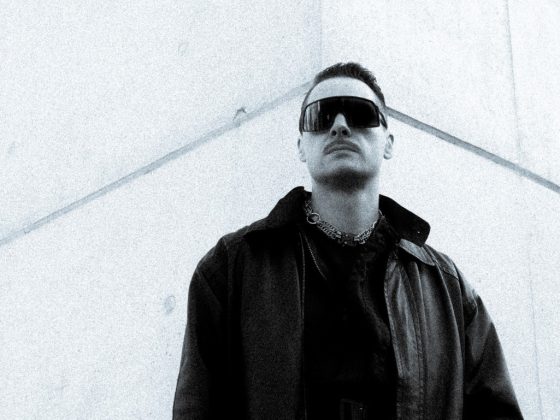


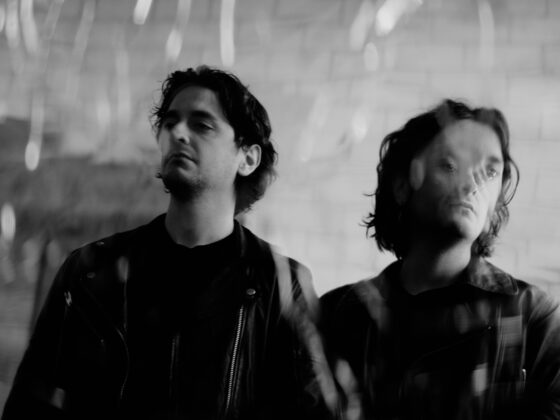







 Or via:
Or via: